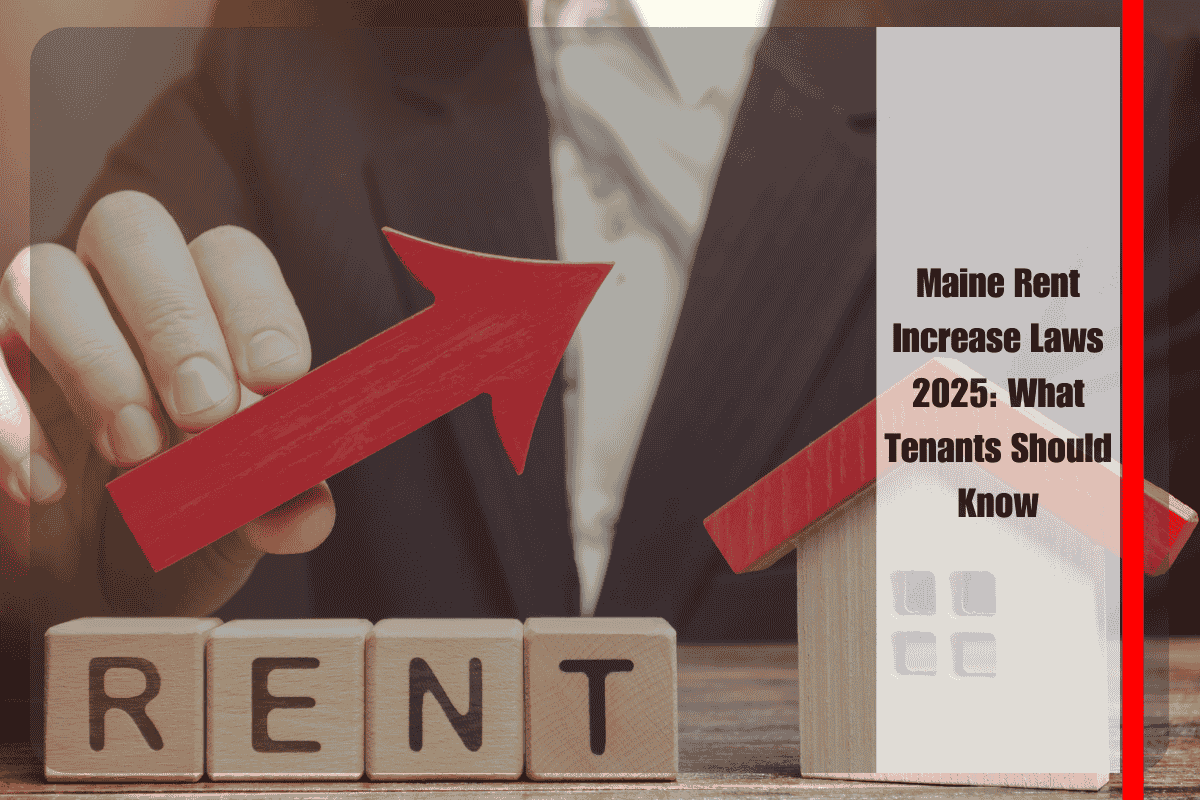Maine has specific laws governing rent increases in 2025 that tenants should be aware of to protect their rights and understand their obligations. The state requires landlords to provide written notice before increasing rent, with specific timelines depending on the size of the increase. If a landlord plans to raise the rent by 10% or more, they must give tenants at least 75 days’ written notice. For rent increases of less than 10%, the notice period is 45 days. These notice requirements are mandatory and cannot be waived, ensuring tenants have sufficient time to adjust their finances or explore other options if needed.
In addition to notice periods, Maine law limits how frequently landlords can raise rent for sitting tenants. Rent can only be increased once every 12 months for the same tenant in the same rental unit, which prevents landlords from imposing multiple increases in a short period that cumulatively become burdensome. However, this rule does not limit the amount by which rent can be raised; there are no statewide caps on the dollar amount of rent increases. Local ordinances, however, may impose additional restrictions. For example, cities like Portland and South Portland have rent control laws that limit annual rent increases to a percentage based on the Consumer Price Index or a fixed percentage, whichever is lower. In Portland, the allowable rent increase for 2025 is capped at 2.5%, with exemptions for new construction, small owner-occupied buildings, and certain other categories.
For tenants residing in mobile homes within mobile home parks in Maine, the rules differ slightly. They must receive at least 30 days’ notice for rent increases, which is a shorter period than for other residential leases. Recent changes have empowered mobile home park residents with some negotiation rights regarding rent hikes, in response to concerns about large and frequent rent increases affecting vulnerable populations.
Maine law also protects tenants from unlawful rent increases by allowing them to recover rent paid in violation of notice or frequency requirements. If a landlord fails to provide proper notice or increases rent illegally, tenants may be entitled to recover rent paid, interest, and reasonable attorney’s fees and costs. Additionally, landlords must ensure that any rent charged complies with habitability standards; they cannot increase rent if the dwelling violates the warranty of habitability.
Maine renters should know that while there is no statewide limit on how much rent can be increased, landlords must provide proper written notice, abide by frequency limitations, and respect local rent control ordinances where applicable. Mobile home tenants have additional protections related to the notice period and negotiation power. Understanding these laws helps tenants plan their housing budgets and seek legal remedies if their rights are violated.
Sources
(https://www.maine.gov/ag/news/article_scams.shtml?id=13153973)
(https://www.portlandmaine.gov/1148/Rent-Control-Rental-Housing-Rights)
(https://www.hemlane.com/resources/maine-rent-control-laws/)
(https://www.steadily.com/blog/rent-increase-laws-regulations-maine)
(https://rudmanwinchell.com/2024/01/04/understanding-maines-new-rental-laws-what-you-need-to-know/)












